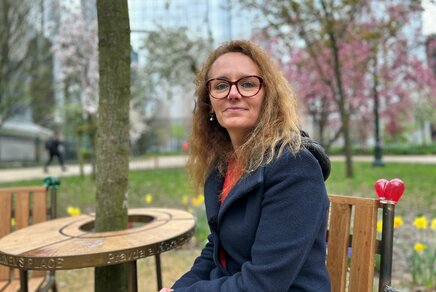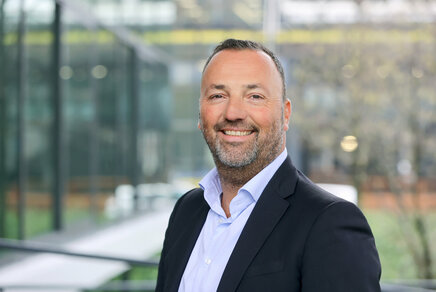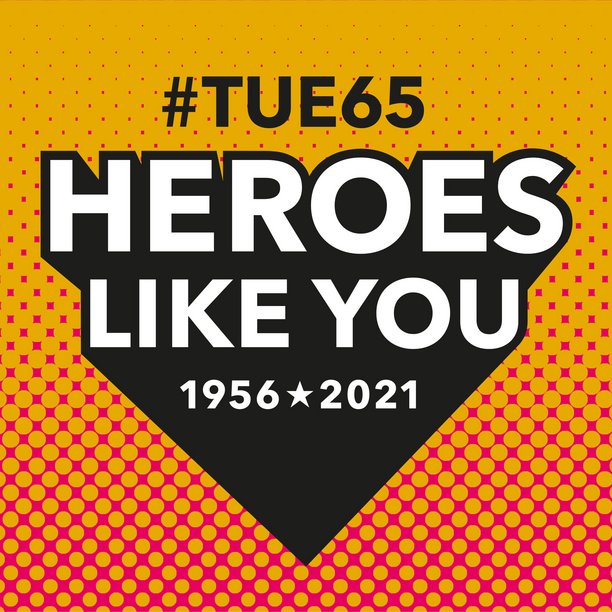In search of the pandemic's opportunities
The ‘heroes of the month’ in September: our academic staff, our many employees who both conduct research and deliver education.
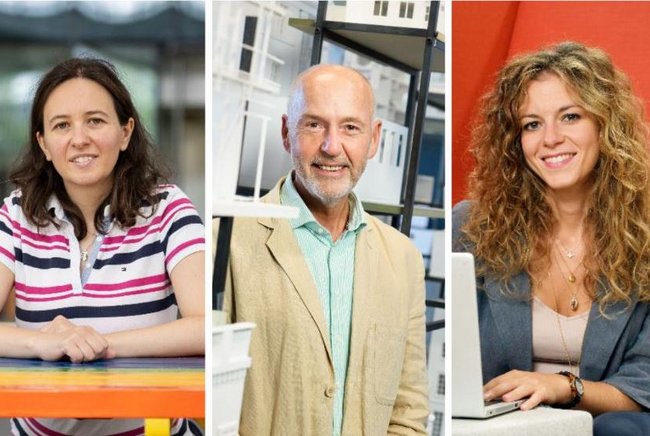
With our campus this month so emphatically returned to life, memories of the unimaginable situation we were in only eighteen months ago could quickly fade. How the university went into lockdown and overnight we had to find our way in the online environment. Elena Torta, Jacob Voorthuis and Claudia Fecarotti are three of our academics who with unflagging enthusiasm kept our education and research going - and who are trying to recognize the good things that came out of the scourge.
“Even in difficult circumstances students wanted to get the most from their project”
Elena Torta is an Assistant Professor in the Control Systems Technology group (Mechanical Engineering).
“I think at the end of the week the uni is going to close,” predicted her manager René van de Molengraft in early March 2020. “But everyone waved the suggestion aside. We made a bet out of it: if the university was still open a week later, he would treat us to cappuccinos, and vice versa.” Van de Molengraft is still owed his cappuccinos, as it happens.
Elena Torta leapt, by her own account, into problem-solving mode when TU/e closed its doors: “A lot of meetings were scheduled, there were lots of lessons to teach, I was right in the middle of a course - how can we ensure everything carries on?”
Online meetings were already familiar territory to this native of Italy - thanks in part to an earlier job at ASML - and she was well versed in Office 365, which would soon be given an accelerated roll-out across TU/e. This worked to her advantage, she feels. “For me, the practical assignments and field study presented the most challenge.” She refers to a planned test involving a robot in the Atlas building, part of a collaboration begun during corona. “A lot of coordination and mailing was necessary, especially at the start when we were finding out who had the power to grant us all the various types of permissions we needed. It was difficult, but everyone was incredibly helpful. And we managed it.”
Whiteboard
Missing the whiteboard was also an issue for Torta (who gained her doctorate at TU/e's Industrial Engineering & Innovation Sciences) - perhaps her favorite item in any discussion with the bachelor's and master's students she supervises. “It's a whole lot harder to exchange ideas like this in the digital environment. I know there are all kinds of tools you can use, but it's different - isn't it? - actually being able to draw, being together physically in one room. It really ups the pace and feels much more natural.”
In any event, this genuine interaction is what drives Torta, she tells us enthusiastically. “I get a huge amount of energy from working with others on a problem; from forming a team, of students or doctoral candidates, say, as part of this work. I enjoy their dedication and like how they are willing to engage in self-reflection when things don't go as expected.”
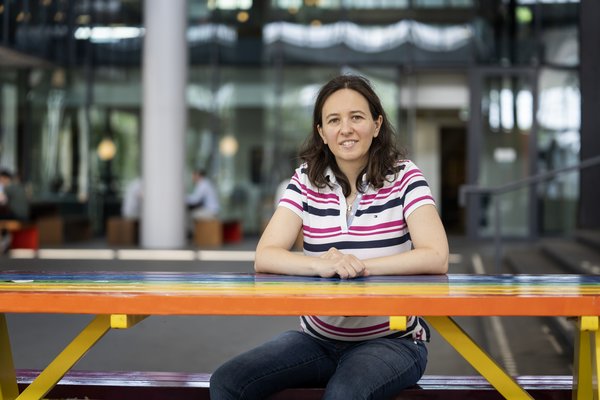
Undiminished dedication and perseverance were also qualities she saw during the pandemic. Torta mentions a group of students working on a robotics project while corona was ongoing and amid all the practical restrictions it entailed. They were determined to do whatever it took to build a physical and working prototype - with the aid of a 3D printer one of them had at home. “That really moved me, that even in these difficult circumstances students still really wanted to make something and get the most out of their studies - even when that was not being asked of them.”
For their part, her students were particularly appreciative of Torta’s online availability, as she was later told on several occasions. Likewise her efforts to hold some activities on campus, as soon as this was again allowed, step by step. “The course I teach for the Honors Academy was my main source of substantial contact with students. And they all told me how eager they were to return to the campus. It used to be where much of their lives took place, but for a long time during the corona pandemic they were spending at most five to ten percent of their time there.”
“All our students were so eager to return to the campus”
- Elena Torta, Assistant Professor at Mechanical Engineering
For Torta personally, the greatest challenge lay in combining her work and her family, especially when from one day to the next her two-year-old daughter could no longer attend daycare. “My husband and I coordinated our diaries wherever possible, but now and then I had to teach or supervise students right when he also had an important meeting. Then I'd tell my students upfront: ‘My daughter is here so at some point she may need my attention.’ Fortunately everyone was very understanding; that two-way traffic and everyone's ability to adapt was heartwarming.”
Back on track
She is now on the campus more often. “I'm again seeing students enjoying campus life, I'm bumping into more colleagues in the corridors and in the lab. That feels good. How the pandemic will continue to unfold, I couldn't possibly predict - but I feel as if we are slowly getting back on track.”
Which, she says, does not necessarily mean returning to (academic) life exactly as it used to be. “We might also have learned some positive things, don't you think? To do with hybrid working, for example. For some meetings online works well; it saves time. I think that blended learning is another valuable asset. We've now got a lot of online material available that we had to develop last year. Why shouldn't we carry forward things that have worked well?”
“Not back to before the pandemic, but on to something better”
- Elena Torta, Assistant Professor at Mechanical Engineering
Torta hopes “that we can reach a new situation. Not the one from before or during the pandemic, but something new, something better.” With more online conferences, for example. “Online saves time, it is better for the environment and it has other advantages. For example, I can more easily refer students to recordings of interesting lectures by keynote speakers at major conferences.”
She is certainly not arguing for a life online, she points out, “but we have had to learn to live with certain aspects of the situation that may well turn out to be opportunities. But hopefully with the campus once more as the hub of activity.”
“I recognized that magical moment when those young faces become animated”
Jacob Voorthuis is an Associate Professor of design philosophy at Built Environment and director of the bachelor's program.
Suddenly the penny dropped, last month outside the Vertigo building where Jacob Voorthuis was happily engaged in welcoming all the first-years, in clusters. “Then and there I realized what the greatest difference is between 'live' on campus and online, it even alarmed me slightly. I started to talk and recognized that magical moment when those young faces become animated, start expressing things and work themselves into all kinds of creases, as they listen to you.”
How different that is online, says Voorthuis, when young people in particular are so strongly aware of their digital environment and their ‘public face’. “As a lecturer I definitely miss that instant, unguarded, spontaneous response to what I am telling them - knowing that something is landing, being processed.”
“I found it a crazy adventure: ‘What on earth is happening now?’”
- Jacob Voorthuis, Associate Professor at Built Environment
And strangely enough, this was not something he had ever been very keenly aware of, acknowledges Voorthuis, who in addition to conducting research, teaches both bachelor's and master's students and supervises them during design projects. “Fed up to the back teeth” was how he came to feel about working online and from home. Despite initially having found it all “pretty cool”, that enforced digital education, the search for ways and means to involve students in the lesson and keep them motivated, of giving feedback, of asking questions. “I found it a crazy adventure: ‘What on earth is happening now?’”
Midway through the third quartile the entire university had to switch abruptly from on-campus to online - and even though this certainly didn't happen without a struggle, “I think the way the uni achieved this was truly phenomenal. Everyone was talking to everyone else, we mastered new things, were swapping best practices.”
His colleague Jan Schevers helped him to offer virtual supervision to students doing design projects, so that drawings could be discussed and modified online - with scope for discussion with many more than the three or four students who normally fit around a drawing board. “We could well benefit from this in future.”
Another plus point, he feels, is the online and hybrid meeting, which by now everyone is pretty familiar with. “If for whatever reason I'm in, say, California, I can still join a meeting in Eindhoven.” Although having said that he can't actually imagine why he would need to be overseas all that often. “Not for a conference anyway. I'd say that's a thing of the past, certainly when you consider climate change.”
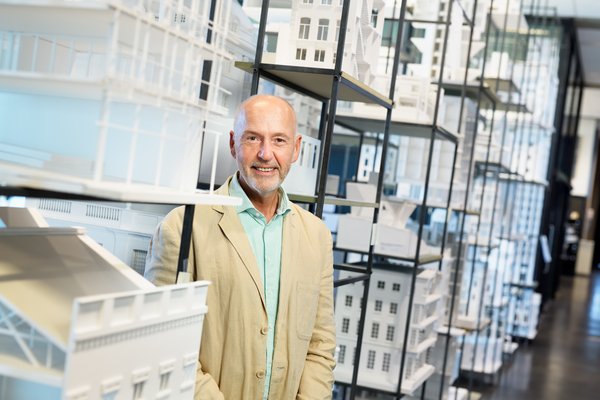
Loneliness
Plenty of positives to take away from the pandemic then, says Voorthuis, but he's keen to keep the life of homeworking and online contact in perspective; it wasn't all roses. “The loneliness was something I found very difficult, I have to say. At a certain point your world gets really small. I was sitting eight, nine hours a day on my reasonably uncomfortable home-office chair, only seeing people digitally. The contact was great, we could share a laugh, at meetings and lectures people were soon rabbiting away. But if you don't happen to bump into each other, as you do in physical life, so much is lost. Only when that falls away do you notice that these informal contacts aren't informal at all, instead they are vital elements in the machinery of a university.”
“My wife simply said, ‘Stop making such a fuss’”
- Jacob Voorthuis, Associate Professor at Built Environment
The question of who or what helped him through difficult periods is one he does not need to ponder. “My wife. She works as a nursing specialist, in particular with women with breast cancer - with people whose lives are turned upside down before their very eyes. She simply said, ‘Stop making such a fuss’. Of course, being a guy, I reacted with all kinds of gorilla-like reflexes: ‘What on earth do you mean?’ But at the end of the day she was right.”
For another audience this also proved a valuable message: the bachelor's students he was able to talk to in the depths of the corona crisis. “It was evident to everyone that students were starting to find it really tough going; you could see it in their faces, their posture, their productivity and excuses. That's when I told them this story, how my wife had given me a talking-to and how I'd found it hard to hear.”
But it did get him thinking, as he told his students. About what exactly it was that he felt he was falling victim to, and whether his feeling was justified. “And then you realize: It's true, I'm kicking up a fuss. I'm going to have to live with this situation and I need to find ways to get through it. For me that meant, for example, making a point of taking walks, watching other walkers I passed by. I wanted to bring home to students that they have power over the course their lives take. Afterwards I heard from various people that it had really helped them.”
Digesting information
Voorthuis is curious about the next phase, the post-corona phase that, he believes, little by little we have already “pretty much” reached. About how it is for the new first-years, who for the first weeks will be rotating in groups of 75 students to be 'live' with him while the rest listen in online. Whether after their initial enthusiasm, they won't after all be drawn by ease to a seat in the virtual lecture theater. “I would find that a pity. Regardless of how a lecture is delivered, the moments before and after, when students chat to each other about their expectations or about what just happened, are even more important. They are when much of the information is digested.”
Another source of moderate concern, despite his vaccinations, is corona “which can still make people really sick. I wonder whether we have truly learned our lessons. Like yesterday at a meeting in Rotterdam, where a lecturer came up to me and without batting an eyelid thrust out his hand to shake mine.”
Nonetheless, the pandemic really has given many people a new awareness, Voorthuis thinks. “Every new experience throws a new light on a past experience. In essence, a pandemic is, of course, a scourge; people have died and a great many people have been through a difficult time. But every scourge also bears fruit. A stronger sense of gratitude for certain things, say, things that are again possible after all the restrictions, and which you experience as if for the first time. Like the intense pleasure I had in seeing the faces of the first-years 'live' again. All that used to be normal - and now that 'normal' is suddenly special.”
“At times you are so busy working that you can forget there's also a life beyond work”
Claudia Fecarotti is an Assistant Professor in the Operations, Planning, Accounting and Control group (Department of Industrial Engineering & Innovation Sciences).
Although Claudia Fecarotti has not lived in Italy for nearly ten years, she has never felt so intensely connected with her home country as she did eighteen months ago. “Before the corona situation got really bad here in the Netherlands, pictures from Italy were showing military trucks full of the bodies of people who had died of COVID. I was speaking long-distance with family and friends, all in lockdown at home, who were telling of completely deserted cities. Not something we could ever have imagined before it happened.”
By her own account, she wanted nothing more than to be with her family, “but you simply don't know what the sensible thing to do is.” In her academic workplace in Eindhoven some people were meanwhile dismissing COVID as a bout of flu, to the dismay of their Italian colleague, more concerned than ever about her loved ones and homeland. “It made me angry that people made light of it.”
Balance
However, the Netherlands soon followed suit and went into lockdown, including TU/e. The months from March until the start of summer Fecarotti spent, like everyone else, mainly at home. Alone in an Eindhoven apartment, in her case, in the company of her laptop, TV and books. Actually her work only increased in that period. “The amount of time spent in front of the screen was idiotic. And then all those online meetings, often back to back, with no break between…” Fortunately, there came a point when the university's awareness of the stress felt by many of its staff increased, says the researcher. “There was no suggestion that we work less, but it was suggested that we pay close attention to the balance.”
Fortunately she was fairly used to homeworking, “at any rate, even before corona I wasn't really working 'nine to five' and I didn't work only in the office. And, it was my good fortune that I don't do any lab work; my laptop and books were pretty much all I needed, as well as access to international journals. Of course, interaction with other people is much nicer when it's 'live'; especially with the industry partners we collaborate with. Some projects were delayed though, for example projects where students were due to spend a while at a company. But we always tried to keep our contacts going, online too. In that sense, homeworking wasn't a big issue.”
What she did try to do, however, was make a definite distinction between her working days and the weekend. She laughs, “It's a silly example perhaps, but I am Italian after all: at the weekend I made a point of taking more time to have a delicious breakfast or a long lunch. I would sit down properly to eat so I could really enjoy it. It's something you can do anytime, of course, and in any case I would sometimes work on a Saturday or Sunday - but for me it really was a way to build in some structure and to stop all the days becoming samey.”
“Sometimes things simply happen that you can't control or steer”
- Claudia Fecarotti, Assistant Professor at Industrial Engineering & Innovation Sciences
During the second corona wave, after last year's pretty relaxed summer, Fecarotti says she realized that “this could last a while yet and that we can't predict when it will end. That did make me feel uncertain. Though you also have to realize that sometimes things simply happen that you can't control or steer. Then you have to accept that a task may take a while longer, adapt as best you can, and trust that the situation will pass if we all do our bit to help.”
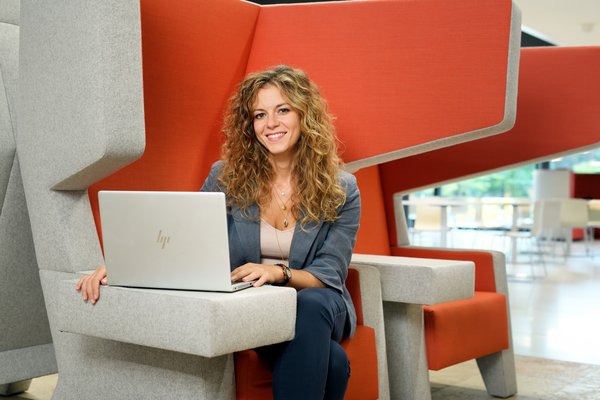
Although Fecarotti was also feeling unsettled for personal reasons that fall. She was experiencing a mild fear of failure triggered by Quality and Reliability Engineering, a broad-ranging, mandatory course attended each year by some three hundred students in the third year of their bachelor's, known by participants to be pretty tough. For Fecarotti, no newcomer to this course, this was her first year in the role of responsible lecturer, “a considerable challenge in itself. And now, on top of that, everything had to be done online for the first time.”
She felt heavily responsible for her students, she says. “I really tried to put myself in their shoes, to imagine what they might have trouble with. Even in the physical space it is sometimes difficult to gain and keep the attention of students; online it is only harder. But they have to pass this course in order to move on; I didn't want the switch to online to have a negative impact on the success rate.”
Together with others on the teaching team, she therefore tried to make the course more manageable. Not by making it easier, “the course content and planning are good. But we did look at how we could get students to better understand why they have to apply certain formulas to certain problems and not to others. To really understand the reason for a choice, to think about that themselves - and not to mindlessly copy whatever the lecturer demonstrates.”
Responsibility
She continues, “I wanted to give them confidence and wanted them to know I was there for them, that I was available to explain things - giving, if need be, a half hour or forty-five minutes of my time to a single student.” Not that this uncompromising readiness on her part meant that students weren't expected to pull their own weight, Fecarotti hastens to add. “They have a responsibility too. I expect students to be prepared; that they watch the video lectures, read the material ahead of the group meetings. Then we can get some serious practice work done in these sessions.”
The pace of thinking about what the department's education would look like in the near future was stepped up by the pandemic, says Fecarotti. “We were already involved in blended learning, for example, because we think it's effective. We were already using video lectures. But the pandemic accelerated various things and ushered in new learning experiences.”
Fecarotti would be happy to see hybrid working and blended learning remain the norm once the pandemic is over. “It's really not necessary to do all your work at the office. Similarly, good collaboration with others is possible without having to see each other every day in person - as academics who frequently cooperate with researchers across our borders we know this better than anyone. As a university, it makes you only more international and inclusive, and it offers more scope for customization and flexibility - for both students and employees. Suppose you would rather work a day from home because your child has fallen ill, for example, or you wish to spend a few days with your parents who live abroad and can use that time to work remotely.”
And the workplace isn't the only place valuable lessons have been learned. “Sometimes you are so busy with the everyday hustle and bustle of your work that you can forget there's also a life beyond work. That only really dawned on me when everything to do with work came to a virtual standstill. Ditto the importance of people in your life, the people you love and feel comfortable with.”
More on our strategy
